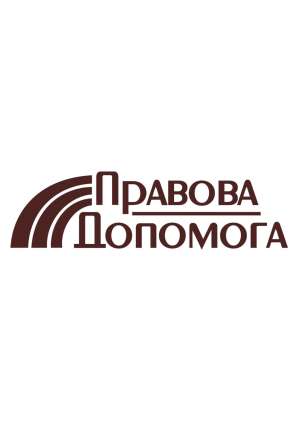Protection of honor and dignity in court: to whom and against who should we complain?
Reviews of our Clients
... our work on joint projects assured us of your high level of professionalism
Article 28 of the Constitution of Ukraine guarantees everyone the right to his dignity respect. The same right and the right to person’s honor respect is provided by the Article 297 of the Civil Code defining honor and dignity of a person (individual) as inviolable. An individual is entitled to protection of honor and dignity including through the court proceedings. But before you try to protect them in court you must understand what exactly do we call honor and dignity, in which cases and how they can be protected, who can be a defendant in these cases, what court can hear such cases and which procedure should be applied.
The terms “honor” and “dignity” are not explained in the legislation since they are moral and ethical categories and can be understood differently by a single person as well as by society in which such person lives. Generally as it appears from Section 4 of the Supreme Court of Ukraine Resolution “On litigation in cases related to protection of honor and dignity of an individual and business reputation of an individual and a legal entity” that dignity should be understood through determination of an individual as a unique biological and psychic value. On the other hand honor is related to positive judgment of an individual by other people and is based on correspondence of his activities (behavior) to generally acceptable believes about good and evil.
Thus the dignity of an individual means him being viewed as a human, biological creature that possesses mind and therefore have the actual dignity (despite race, color, national origin and other). Honor is related to person being judged as a member of society, depending on his occupation, field of activities, his particular deeds.
Cases of honor and dignity protection are subject to be heard by courts of general jurisdiction in civil proceedings despite the fact who is a plaintiff and a defendant. As determined by the Plenum of the Supreme Court of Ukraine disputes related to protection of honor and dignity are not of public legal nature even if an authority representative is a party in this dispute ( for example some governmental official). The commercial courts can only hear cases of business reputation protection in between legal entities and other business entities.
Protection of honor and dignity in court will depend on the nature of deeds that caused violations. Most commonly violations take form of spread of negative information about a person and his or her deeds. In such cases a claim of unreliable information refuting goes along with a claim of honor and dignity protection. According to part 3 of Article 227 of the Civil Code of Ukraine any negative information about a person that was disseminated is a priori unreliable. A right to make such claims is provided to individuals harmed by unreliable information that was spread and his or her family members, relatives and other persons that are directly or indirectly harmed by such information. Honor and dignity protection claims can be filed at any time since the legislation does not provide deadlines. The only exception is claim about refuting of unreliable information published in mass media which can be filed within a year after the moment a person finds out about his or her rights violations.
The claim about refuting of unreliable information is filed against a person that spreads unreliable information and also against the author of such information. As for such information published in mass media the author and the editorial staff are the ones who will be defendants in the case (other establishment that performs functions of editorial establishment including legal entity that owns an editorial establishment as a branch). If the information was published on the Internet an author of information and website owner will be defendants, when the information is anonymous and access to a website is free – the owner of the website by himself. Information about website owner may be requested from registration of domain names and addresses of the Ukrainian segment of the Internet system administrator. As for today such administration is performed by “Hostmaster” company. If unreliable information was spread by a service man or a governmental official during performing of his duties a legal entity that he works for will become a defendant. At the same time governmental official may be engaged as a third party without personal claims.
When a person who spreads information that defames honor and dignity is unknown (for example spreading of anonymous leaflets or messages including via the Internet) such information is to be refuted by a person that was harmed by such information. In this case a court is entitled to establish the fact of information being unreliable and refute it through a separate proceeding.
When a claim for unreliable information to be refuted is satisfied it must be refuted the same way it was spread. It means that if it was spread in mass media its refuting must be conducted in the same media and if the media does not exist anymore the refuting may be done in any other media. If unreliable information is contained in a document issued by a legal entity such document is withdrawn. Also as a method of protection against unreliable information spreading it is possible to apply court prohibition on dissemination of an issue of newspaper, magazine, book, film, TV or radio program where such information is contained or withdrawal of all the issues in order for them to be destroyed. An apology is not stipulated in the legislation as a method of honor and dignity protection in court but it may be applied upon entering into amicable agreement.
Our clients






